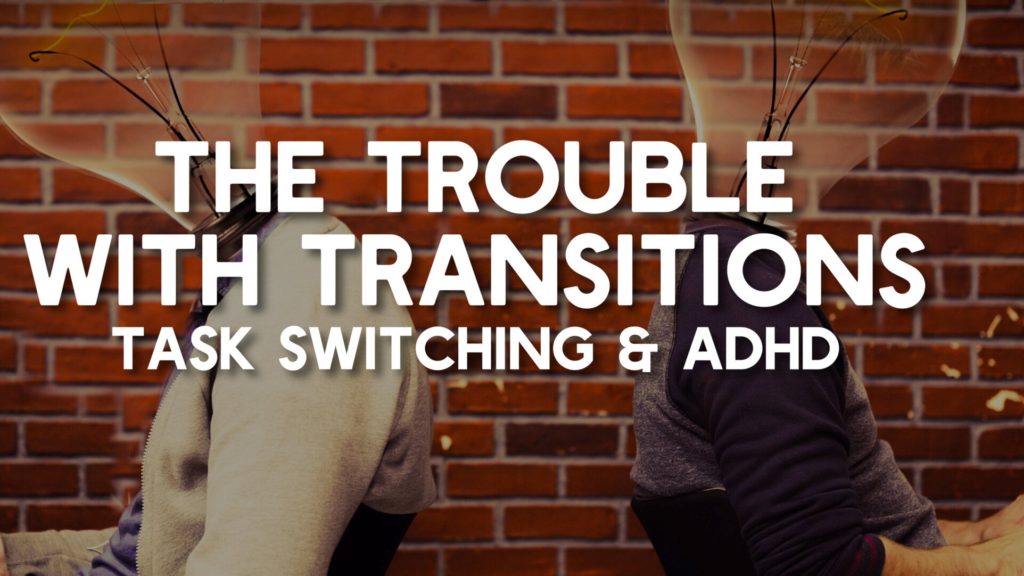
When you are a women with ADHD switching tasks can be difficult. When you are trying to start a task you may feel like you are stuck in a gear which keeps on grinding. There may be other times where you may just want to stop the gear but it just stays in place because you are hyper focusing on whatever you are doing. The bottom line is you get overwhelmed when you struggle from going from one task to another and you are wondering why it is difficult for you to transition but more than anything you want to know what can you do it make it easier.
What is task switching?
Task switching is a term where your ADHD brain stops focusing and acting on one thing and switches over to do another. But not all tasks require switching. We can drive and talk at the same time. We can walk and listen while we eat lunch, listen to music, and read a book all at the same time. The important thing to note, though, is that our brains CAN’T do more than one complicated, complex, or novel task at a time— or at least not well and quickly. So if one of those tasks is automatic- think eating, breathing, walking, or doing dishes) we’re good. But as soon as the task gets more complex, our brains are like lucy desperately trying to eat all the chocolates on a conveyor belt at warp speed- sure, she got a mouthful, but soon she has to come up with another solution!
Why is switching tasks difficult for women with ADHD?
The ADHD brain conductor (the executive functioning system) is given a small handful of money on any given day… Anytime the ADHD conductor spends a little bit of that cash and when the money starts to go low it starts to get stingy, it starts to whine, object and down object and down-right refuse to spend one single more dollar. However our ADHD brain’s natural desire to seek out new tasks, switch focus, and “multi-task,” and we start to see that cash supply dwindling much faster. And when we hit zero? That’s when all bets are off. We are more likely to feel foggy, be impulsive, feel unable to start, feel unable to stop, interrupt, get angry and frustrated, and generally feel more out of control.
Strategies For Transitions as a women with ADHD
When our brains are struggling to manage the many transitions of our daily life, it can be useful to identify where on the path of transition it is getting stuck: Stopping—-Switching—-Starting—-Focusing. Once we see where that stuck comes, we can start to help our brain along with some ADHD-friendly strategies
Use A Checklist- Checklists can help you through everything that you need to do without having to think to much. Write down everything you are working on if you get distracted or an emergency comes up this will help you go right back to where you stopped rather than starting another task or needing a day or two to figure out where you left off
Plan For The Next Day- Every night get yourself ready for the next day, so you won’t have to be running around in the morning looking for things. Plus, this mentally preps you for your day and minimizes any surprises that may pop up.
Gather Everything You Need– Getting everything you need for a task or a project helps you because you will have everything you need in front of you and you won’t have to go around the house looking for it. Also, it assists you to think and visually see what you have to do.
Scheduling- It is important to try to schedule 15 minutes in between your appointments or activities. The reason being this will give you time to look back upon what you just have finished and to get ready for your next task.
Set Up A Morning/Evening Routine– Creating a morning and evening routine is good for your body and mind so they can get used to doing things a certain time of the day. For example, try to do your weekly food shopping at the same time each week. You may be resilient to the routines at first however creating routines make transitioning a lot easier
Set A Timer- Setting a timer really can help you because it will give you a warning in advance when you it is time to wind down. Use the loudest alarm you have and put it somewhere where you have to actually get up to turn it off. Once you are up it will be easier to go onto the next task.
Don’t Be Hard On Yourself– No matter how much time you take to plan, organize your life to make transitioning easier, unexpected things can happen. When this does occur, make note that transitioning is difficult, but you are trying to do your best, and try not to be hard on yourself and start comparing yourself to others.